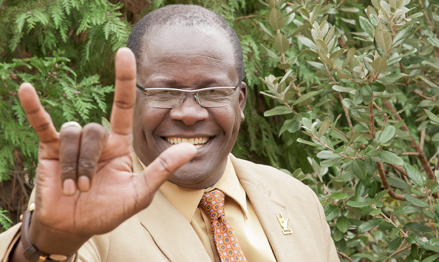Latest News Archive
Please select Category, Year, and then Month to display items
23 April 2020
|
Story Cornelius Hagenmeier
|
Photo Pixabay

The iKudu project, which is an European Union-funded Capacity Building in Higher Education (CBHE) project, has recently launched its blog, which aims to amplify the diverse voices of all iKudu stakeholders. In this space, members of the iKudu team will regularly share their views on the project and related international education topics.
The iKudu project focuses on developing a contextualised South African concept of Internationalisation of the Curriculum (IoC), which integrates Cooperative Online International Learning (COIL) virtual exchanges. The project was launched by the UFS in 2019, together with nine European and South African partner universities. It is funded by the European Union’s Erasmus+ programme with EUR999 881 (approximately R20 million) and is implemented over a three-year period.
The iKudu project is based on the fundamental belief that it is necessary to rethink internationalisation in an uncertain world. First, it is crucial to recognise and transform the power dynamics underlying international academic collaboration. Second, it is essential to develop pedagogies that allow every student to participate in international education, integrating technology where appropriate.
However, while all stakeholders agree on the fundamental tenets of the project and its principal goals, all iKudu stakeholders contribute different perspectives. In the blog, the iKudu stakeholders will provide a space for intellectual discourse on the project and related international education topics, which will allow constructive and critical engagement.
The link to the blog can be found at: https://www.ufs.ac.za/ikudu/ikudu-blogs/Transforming-Curricula-through-Internationalisation-and-Virtual-Exchanges
National accolade for Dr Philemon Akach
2013-10-21
|
 |
|
Dr Philemon Akach
Photo: Sonia Small
21 October 2013 |
Excellence in Teaching and Learning is highly regarded at the University of the Free State, with our academics recognised on national and international platform.
Earning yet another accolade for the university, Dr Philemon Akach, Head of the Department of South African Sign Language, has been awarded a National Excellence in Teaching and Learning Award. The award by the Higher Education Learning and Teaching Association of Southern Africa (HELTASA) and Council on Higher Education (CHE), recognised Dr Akach as a “leader in the field of teaching and learning – with impact beyond the classroom and the institution.” Recognising his pioneering work within deaf education, HELTASA and CHE commend Dr Akach as an “inspirational practitioner who recognises the inclusion of the marginalised in education.”
Dr Akach is one of five recipients, selected out of a total of 22 candidates from across South Africa that will receive the award. The other winners are from the University of Cape Town, Stellenbosch University, University of KwaZulu-Natal and the University of Pretoria. The five winners will receive the awards at a gala dinner at the annual HELTASA conference, which takes place from 26 to 29 November 2013.
Dr Akach, who will retire at the end of 2014, says the national recognition is the cherry on top as he prepares to return to his home country. Kenya. “How good can it be?” “This is my life calling,” he said about the 37 years he worked within deaf education.
The academic also received an Alumni Award for Outstanding Service at the recent Kovsie Alumni Awards.
Pioneering work by Dr Akach:
- With Dr Akach steering the process, the UFS became the first university on the continent to offer Sign Language as an academic course in 1999.
- Dr Akach was part of a nine-member task team that handed over the South African Sign Language (SASL) curriculum to the Minister of Basic Education, Angie Motshekga. A member of the ministerial task team since 2009, he helped to coordinate the development of the curriculum that will soon be offered as a school subject to Grade 0–12 learners in all 42 schools for the deaf in South Africa.